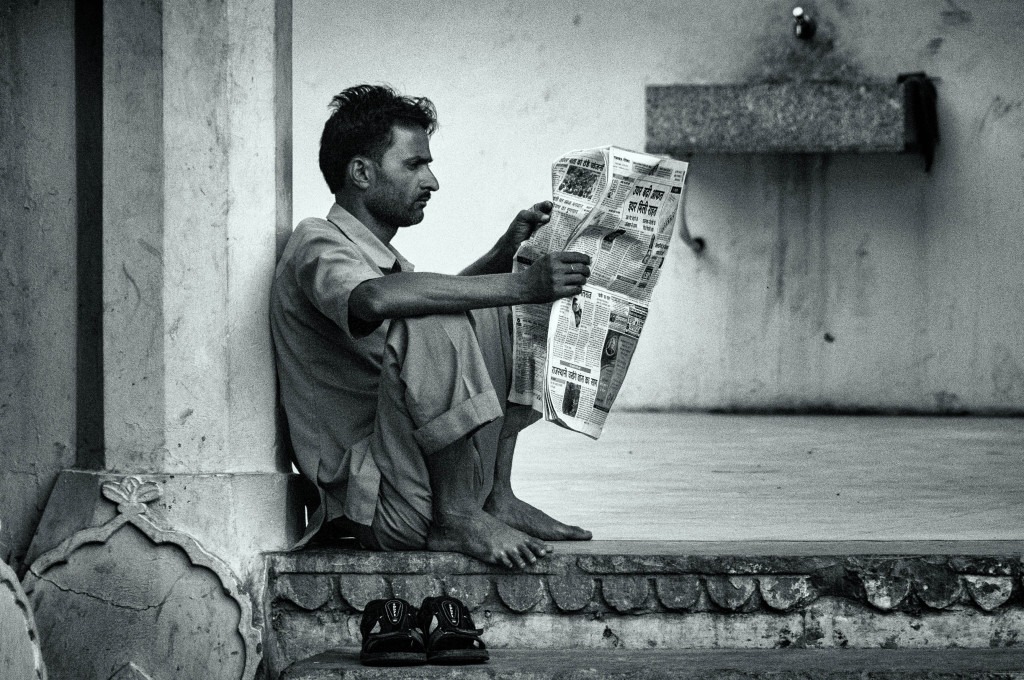‘Press notes cannot replace journalistic reportage and reporters are the foot soldiers of journalism,’ says expert
SRINAGAR, Jammu and Kashmir (AA) – Ishfaq Reshi, a journalist in Indian-administered Kashmir, has been unemployed for two years.
He lost his job soon after the Indian government scrapped the limited autonomy of the region on Aug. 5, 2019, while imposing a strict military and communications lockdown.
“Aug. 5 is my job loss anniversary as well,” he recalls jokingly but says the tough times he has faced since then are “innumerable,” which has drained him physically as well as emotionally.
In April 2016, Reshi began working as an intern reporter at a local daily in the region, ‘Kashmir Reader,’ which itself began operating in 2012. He was soon appointed as a full-time reporter at the newspaper.
“I remember it was after the killing of Hizbul Commander Burhan Wani in July 2016 when I came to be appointed as a staffer. I worked there without any break till the revocation of limited autonomy.”
But after the revocation, Reshi was told not to work anymore until the situation returns to normal.
“But that ‘normal’ is yet to return for local journalists like me who have lost their jobs,” he said.
Local journalism ‘worst-hit’
After the revocation took place, many media organizations in the Kashmir region asked reporters from certain districts to stop working. Only a handful of reporters from districts were retained, and still, those who were asked ‘not to work’ have not been called back to the office.
Reshi said he has asked his employer a few times whether he can start working again, but the response has not been positive so far.
The owner and editor-in-chief of Kashmir Reader, Haji Hayat, told Anadolu Agency that for the last three years, local journalism has been hit hard.
He said nearly 50% of the staff at the newspaper has been laid off due to the deep financial crunch that it is facing on account of no government advertisements in the last three years — a prime source of revenue generation.
“Despite taking up this issue with the government many times, nothing has been done. Without any justification and on the basis of verbal orders, they are stopping the advertisements, which has left the organization in deep financial straits. They know very well that here in Kashmir, there is no private sector that you can look up to, so it is one of the pressure tactics which they are employing against us to keep us at bay,” Hayat said.
Missing stories
Media experts say that since 2019, there are ‘missing stories’ in the local media of Kashmir related to happenings in different areas of the region.
Suhail Ahmad, who has been teaching journalism studies for the last 12 years in the region, told Anadolu Agency that the intimidation, threats, risks and job cuts have really impacted local journalism in Kashmir.
He said that the talk is usually about the impact of media layoffs on the livelihoods of reporters, but the fact is that such drastic cutbacks in newsrooms also affect the quality of journalism.
“In Kashmir, for instance, several [media] organizations laid off their district reporters in recent years. As a result, stories from the ground are more or less missing, and readers remain oblivious to the concerns of people,” he said.
He further said that local reporters have their ears to the ground and are connected to the masses.
“When you take out that crucial intermediary, you are bound to miss out on vital information and insight,” he noted.
On the other hand, journalists reporting at the national or international level say there is a missing pattern of stories due to the absence of local reporters.
Safwat Zargar, a journalist working with the Indian news portal Scroll.in, said a journalist working for national or international media looks for stories that are locally done, but unfortunately, that granular reporting on the ground has been missing since 2019.
“We do not know what is happening in different areas. It was the local reporter who brought that story out, which was later on followed by others,” Zargar said.
He added that even issues apart from conflict are not reported now.
The tightening screws on journalism in Kashmir were codified in a new media policy that was rolled out last year on June 20, where the government can choose which reports are ‘fake’ and which are not, besides mandatory verification for journalists in Kashmir.
However, experts say that press notes cannot replace journalistic reportage, and reporters are the foot soldiers of journalism.
“If news organizations want to stay relevant, they should not compromise on human resources, particularly reporters. Also, the journalistic fraternity should think of means to safeguard the jobs of reporters during times of financial and other constraints. There is a dire need to infuse a new lease of life in local newsrooms by welcoming the reporters back,” said Ahmad.

